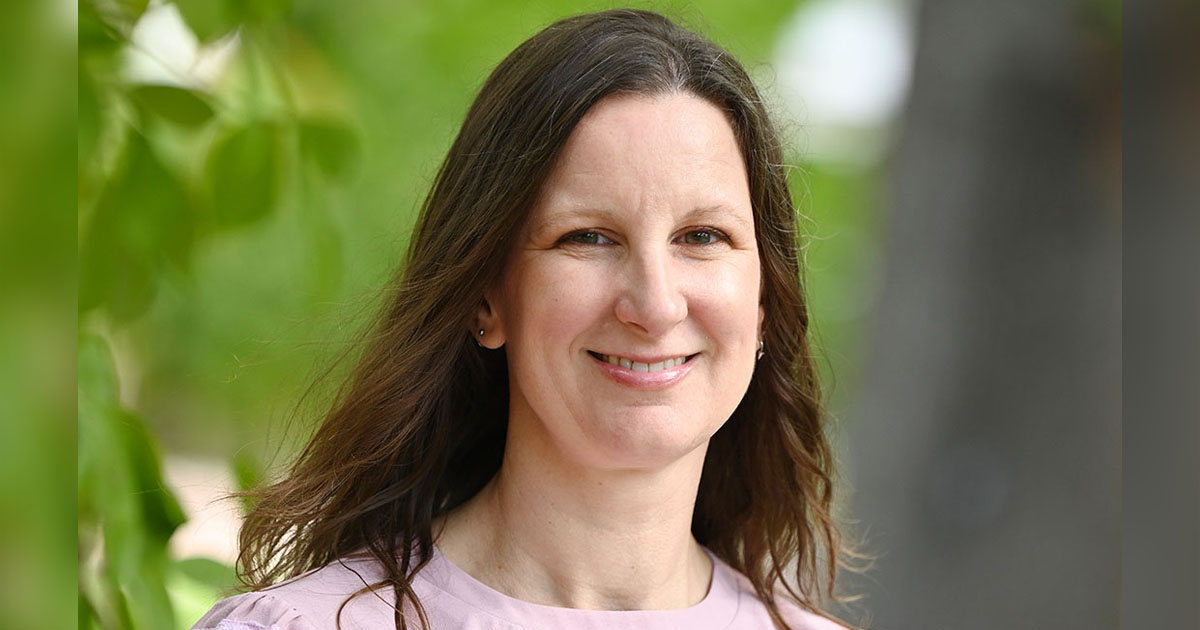SU's Schlehofer Earns $50,000 USM Wilson H. Elkins Professorship
By SU Public Relations
SALISBURY, MD---Dr. Michèle Schlehofer, Salisbury University professor of psychology, has been having important conversations with those on campus and in the greater Salisbury community through the Re-Envisioning Ethics Access and Community Humanities (REACH) initiative for years.
She now has the opportunity to expand that initiative as one of just four recipients of the University System of Maryland (USM) Wilson H. Elkins Professorship.
“The Elkins Professorship will really help me develop the work that we’ve been doing with the REACH program into a sustainable community resource,” said Schlehofer.
The professorship comes with a $50,000 award, which will help create the Center for Ethical Responsibility and Transformation (CERT), which will focus on the efforts of REACH.
“Ethical questions affect each of us every day, and Dr. Schlehofer ensures students are able to take a critical approach to applying what they learn by examining real-world scenarios,” said SU President Carolyn Ringer Lepre. “It is wonderful that the USM has recognized her efforts in a way that will positively impact not just those at SU, but in the community at large.”
The financial benefit allows for staff to be dedicated to running the center, and for more outward-facing events like community discussions and workshops. It will also allow for an intern to be hired for the center, keeping more direct lines of communication open to the community organizations involved.
“I think it’s vital that we are connected to the community,” said Schlehofer. “Salisbury University is a public institution; we’re a public good. I think that’s embedded in our mission, that we’re going to be of service and use to the community. And I really see the REACH project being a mechanism through which our local community can hold the University accountable and making sure that we’re actually providing the types of goods and resources and the value add that people in our area benefit from and that they need.”
Through the added benefits of the Elkins Professorship, the REACH program not only will continue to work in the community, but will serve as a vital teaching tool for SU faculty, benefiting SU students.
“One of the reasons why we started REACH is because ethics tend to get overlooked in a lot of classes; where we tend to cover ethics in pre-professional programs is really centered in ethics codes,” said Schlehofer. “That is one way of helping you think through ethics issues, but it doesn’t always tap into the types of real-time decisions that students are going to encounter that have a lot of ethical implications.
“We want to do more than just train students on ethics codes or how to avoid plagiarism. We really want to teach them how to engage with ethical problems that they might be experiencing. Our local community is really ripe for ethical decision making.”
Through the REACH program’s community listening sessions, SU faculty bring ethical issues from the community into their classrooms, where students work through situations using practical and ethical lenses. The financial benefit of the Elkins Professorship will allow a closer connection between the community and CERT – and therefore, SU students.
Schlehofer also recently was announced as a recipient of the Society for the Psychological Study of Social Sciences (SPSSI) Action-Teaching Grant. That grant will fund work similar to the type of tailored training on community engaged projects CERT will provide. This semester, with funding from the SPSSI Action-Teaching grant, one of her classes is benefiting through site visits to learn more about the legacy of lynching in the region and how that may impact race relationships.
Schlehofer believes getting students involved in projects and initiatives like CERT and REACH allow them to receive their best education.
“I like to do a lot of hands-on projects in my classes, whenever possible, because I think those are the types of skills that students really benefit from,” she said. “Anyone can read something out of a book, memorize something and take a multiple-choice test, or even write a paper on it. But it’s really the ability to apply things that they’re learning in our local community, where I think it really helps students develop as individuals and lifelong learners, and helps them see the deeper connection between the things they’re learning in the classroom and the types of things that they’ll be doing when they graduate and get a job.”
Schlehofer, a first-generation college student, sees giving back to the student body and the greater Salisbury community as a privilege.
“I put myself through college,” she said. “It is a big honor to work at a university and to have the types of access and ability to transform so many peoples’ lives — not only our students’ but those in community groups that I’ve partnered with.
“I’ve always seen my role as a faculty member as a huge responsibility to contribute and give back to the community. I think that’s part of our ethical responsibility as faculty members, and I’m very humbled that the USM would entrust me with funds to help meet that goal.”
The Elkins Professorship honors the late Wilson H. Elkins, who led the University of Maryland flagship campus to new levels of distinction as its president from 1954 to 1978. The Wilson H. Elkins Endowment Fund supports the professorship awards in combination with institutional and system resources. This endowment and others like it further USM’s mission of teaching, research, and public service. For more information, visit the Wilson H. Elkins Professorship webpage at https://www.usmd.edu/usm/academicaffairs/elkins.html.
Learn more about SU and opportunities to Make Tomorrow Yours at www.salisbury.edu.

